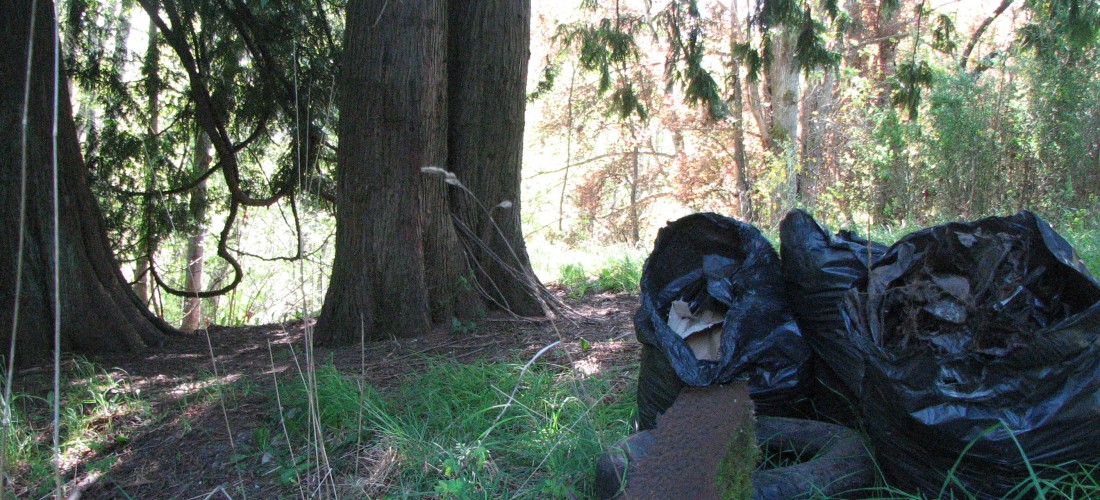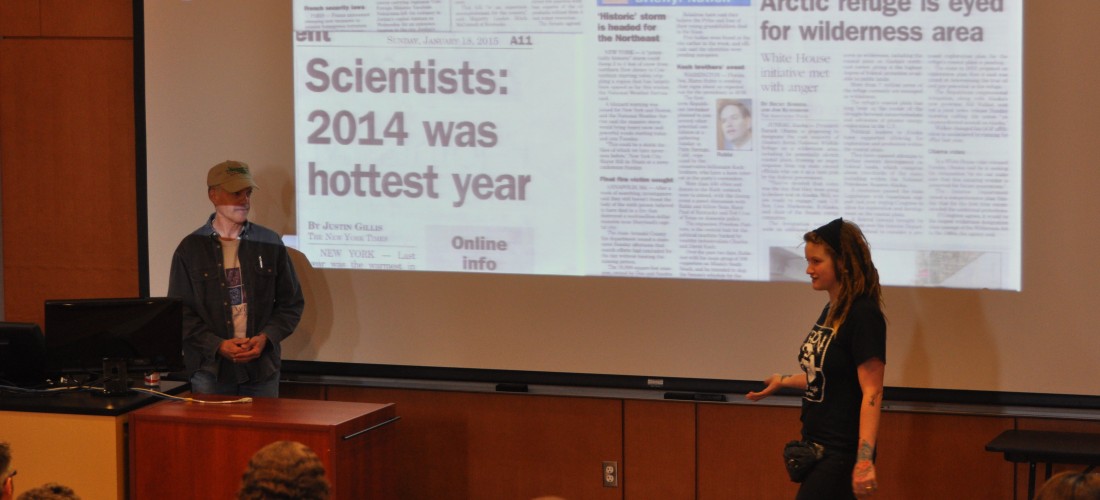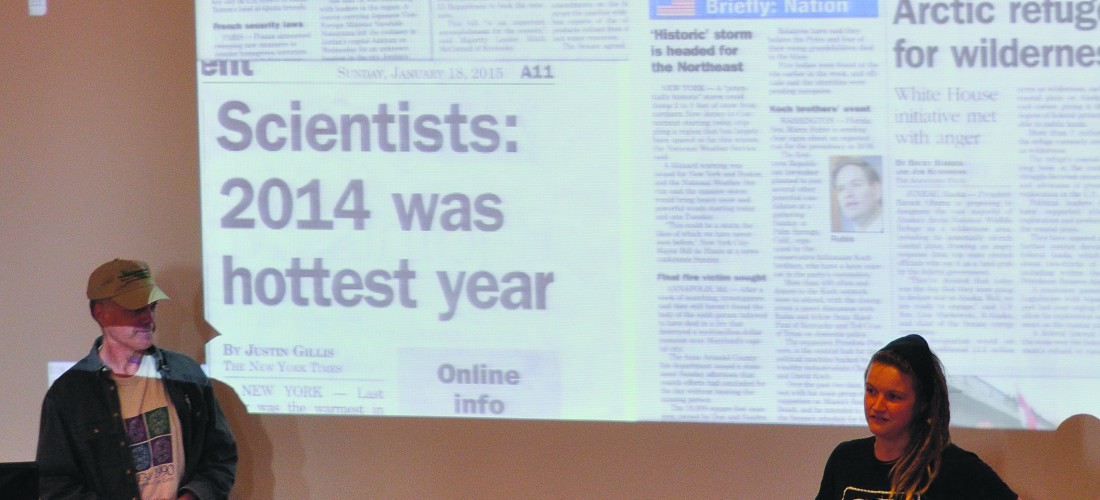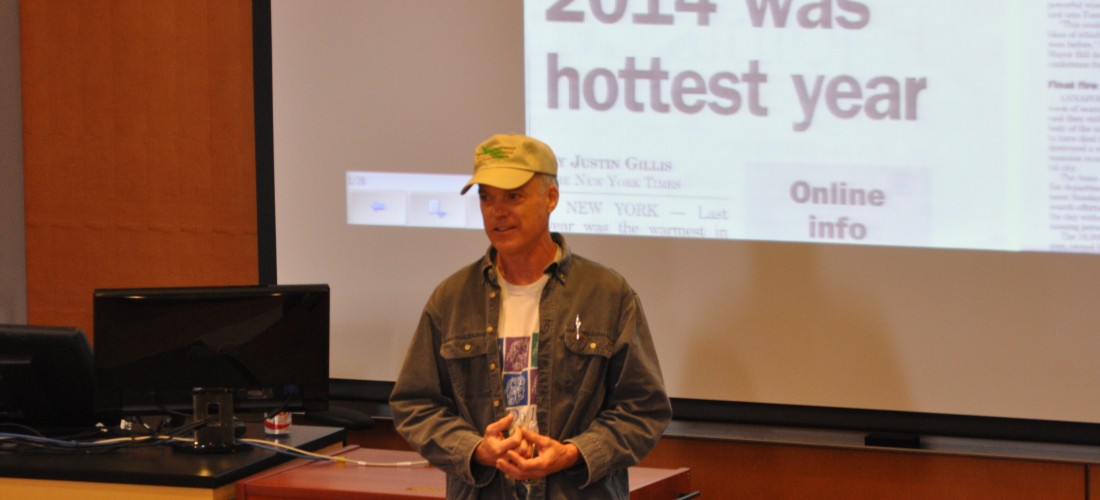
By Eric Trent
The Polar Pioneer, Royal Dutch Shell’s new oil rig, anchored in Port Angeles’ harbor, loomed over the waterfront during Earth Week, a reminder to Port Angeles citizens the realities facing Earth in terms of environmental sustainability and the difficulties faced in preserving the environment.
Earth Week 2015 kicked off at Peninsula College with a “Pick up the Trash” event where Peninsula students picked up trash around campus and Port Angeles.
Next up, the Fiero Marine Life Center visited campus and displayed a model of Port Angeles’ drainage system.
Then a lecture and presentation titled “Catching the Wave of sustainability was given by Professor Dan Underwood.
Following the lecture, the ASC offered free seeds for students to take home and plant.
Earth Week wrapped up with a free documentary hosted by Nancy Bluestein-Johnson of Huxley College.
Catching the Wave
Donning a vintage, 1990 Earth Day shirt, Dan Underwood, Professor of Economics and Environmental Science, gave an environmental and economic sustainability presentation, in Keegan Hall, on Earth Day 2015.
Underwood said that 20 years ago, we were on our first best choice. Ten years ago, we were on our third best choice. Now we’re on our fifth best choice, in terms of options for renewable energy.
Covering fuel cells, renewable energy, and sustainability, Underwood utilized flow charts and graphs in his explanations.
Underwood illustrated transportation solutions, saying that carbon dioxide emissions could be reduced in the atmosphere by one-third, by changing fuel sources. The earth has enough natural gas to last 10,000 years that can be be used in the transformation to a sustainable economy, especially for transportation.
“If we’re going to make it, it’s going to be through hydrogen,” Underwood said. Fuel cells will be the future of transportation, vehicles that don’t have batteries and run on hydrogen. Underwood stated how a Hummer is actually better for the environment than a Prius.
There is a high-cost involved in producing Prius batteries, that involve rare earth metals, the batteries have a short, four-year life cycle, and there is no environmentally viable way to dispose of them, all contribute to the environmentally harmfulness of a Prius, compared to a Hummer.
Underwood said, renewable electricity will be vital for humanity in the future, and solar and wind power alone will not be enough for mankind.
Iceland has already moved toward geothermal electricity to power its country, he said and 99 percent of Norway’s electricity comes from hydro-power. These were prime examples of countries successfully utilizing sustainable and renewable energy.
It is already starting to work for other countries, and it can work for us. We have to continually lobby our legislators and senators to push for a future of sustainability and renewable energy, Underwood said.







